Association of Jewish Organisations and Communities (Vaad) of Ukraine «Recovery during the War» programme: main and auxiliary special projects
Report as of July 1, 2024
Results of the Programme in 2022-2023 as of 2023-12-31:
The «Recovery during the War» programme is a massive programme of psychological rehabilitation for Ukrainian citizens (women, children, and soldiers) who have survived hostilities, occupation, massive shelling, injuries and barotraumas, imprisonment, evacuation, loss of housing, and, worst of all, who lost their loved ones as a result of the war.
The programme consists of main independent three-week projects in safe and picturesque locations in Western Ukraine, as well as auxiliary special projects.
Main projects:
Over the course of 6 months in 2024, 21 three-week projects were conducted; since the beginning of the Programme on May 1, 2022, 101 projects;
The first stage of psychological rehabilitation was completed by:
|
|
In the 6 months of 2024 |
Since the beginning of the Programme (May 1, 2022) |
|
Number of projects (shifts) |
21 |
101 |
|
Number of families who received help in main projects |
283 |
1443 |
|
Total number of participants |
595 |
3231 |
|
adults |
292 |
1516 (including 67 men) |
|
children aged 2-17 |
303 |
1715 |
|
Families with losses due to the war |
86 |
360 |
The average number of participants in one project is 32: 15 adults and 17 children.
The average percentage of families that lost members (spouses or children) due to the war is 24.9%.
The number of psychologists who worked at the Programme at least once is 142, some of whom have participated 2-8 times.
The number of artisans and art therapists is 8. All of them have participated several times and in total have worked a shift of 101 weeks of art therapy and arts and crafts classes.
The number of volunteers who ensured the quality of each project is more than 40.
Dozens of administrators, educators, nannies, and tour instructors also worked on the main projects of the Programme.
A total of 6,004 families (adults and children) in need of psychological rehabilitation are listed in the Programme database as of July 1, 2024, 1,443 of which have already completed the first and most important stage of psychological rehabilitation.
The family to participant ratio as of July 1, 2024 is 2.24
Thus, we can see that in total, there are more than 13,448 adults and children in the Programme database, 3,231 of whom have received psychological support during the 26 months of the Programme's operation, which is to say they have completed the first and main stage of rehabilitation.
Our "queue" for the Programme grows faster than we can help our wards pass the three-week course of the first stage of psychological rehabilitation. In conclusion, it is desirable to increase the capacity of the Programme and, accordingly, the financing.
All services, including accommodation, meals, and the work of psychologists, are provided to the wards of our Programme free of charge.
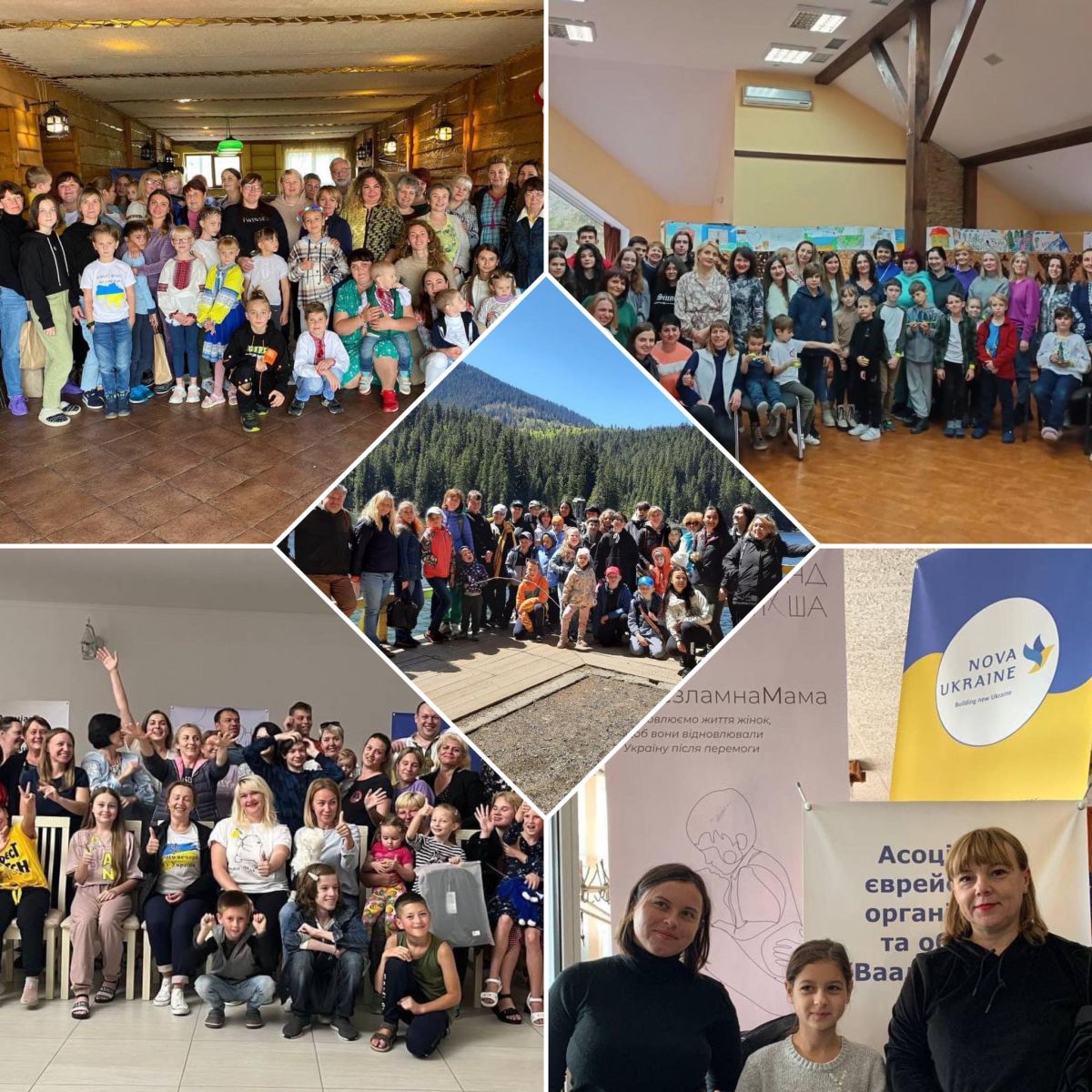
Auxiliary projects of the Programme
- Seminar for methodologist-psychologists
The rapid increase in the number of people in need of psychological help requires the expansion of the Programme, which is to say continuous and parallel work in 4-6 locations simultaneously. Since each group of psychologists working on different projects of the Programme needs a degree of coordination within the project, the Programme management has prepared and held a webinar for methodologist-psychologists on January 18-21, 2023, in which 20 psychologists and 10 lecturers have participated. An analogous seminar for methodologists is planned for the second half of January 2025.
The objectives of the methodologists activities are:
- development of a unified, friendly team out of individual psychologists who have not previously worked together;
- familiarisation of the team with questionnaires and test results from future project participants;
- task division among psychologists within each project;
- development of a rehabilitation programme for the participants of a specific project by coordinating and adapting known methods and practices to the needs of a specific group of participants;
- creation of a weekly schedule plan outlining the workload of all psychologists;
- clarification of rules and requirements for all aspects of the project
- compilation of a methodological report at the end of each project.
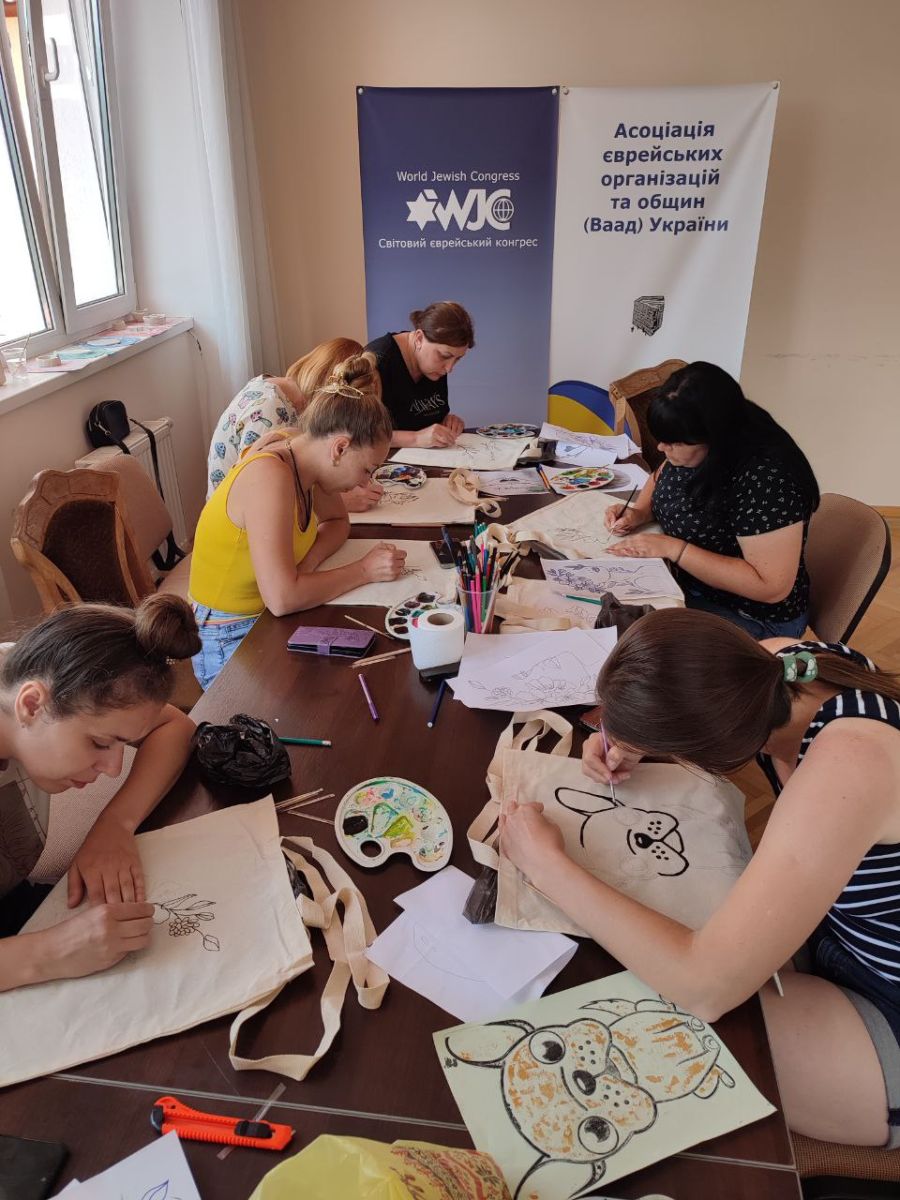
1. Participant screening
The large number of adults and children in need of psychological help has pushed the Programme team to find methods of differentiating the entire array of victims of hostilities according to the depth of their stress and trauma. In the autumn of 2022, a screening system for the entire mass of adults and children who applied to the Programme for help was developed and coordinated with various psychological groups and organisations with the help of professional psychologists.
The screening of all potential Programme participants by psychologists from two institutions, the CETA Programme (Department of Psychology of the National University of Kyiv-Mohyla Academy) and the Open Doors project (International Institute of Postgraduate Education), started in January 2023. In July 2023, they were joined by a third group of CBT psychologists trained by the Department of Psychology of the Ukrainian Catholic University.
As of July 1, 2024, 5,028 adult participants, i.e., about 84% of the potential participants of the Programme, were invited for screening. 3,379 (67%) adult participants have passed the screening conducted by the specified three teams of psychologists of our partner organisations as of July 1, 2024.
1,639 (33%) of participants refused online communication with the psychologists who conducted the screening.
The results of the screening help the Programme management divide the array of candidates for participation in the Programme into three groups:
- candidates with low test results and appropriate comments from psychologists who do not need an intensive rehabilitation course and are provided with only a "self-help suitcase" (Group 1 — 319 women (9%) as of July 1, 2024);
- candidates with average test results and appropriate comments from psychologists, who will be sent to our partner psychological organisations to complete an online counselling course (Group 2 — 1,311 adults (39%) as of July 1, 2024). The participants belonging to the second group (all 1,311 adults and their children) have received the opportunity from our partners to complete an online counselling course (4-16 sessions) in addition to the "self-help suitcase", with the aim of achieving a state of psychological rehabilitation;
- candidates with high test results and appropriate comments from psychologists who, due to their high need for psychological intervention, will be invited to participate in one of the main projects of the "Recovery during the War" Programme to undergo an intensive three-week course of the first stage of rehabilitation (Group 3 — 1,749 adult participants (52%) as of July 1, 2024);
- Participants of the third group, for whom the diagnostician psychologists who conducted the screening saw the need for psychiatric consultations (separated Group 4 — 251 adult women (7.5%) as of July 1, 2024).
Thus, using the screening results, we significantly shorten the queue of potential project participants and manage to pass the bulk of the most affected candidates through the Programme during this year, thereby significantly reducing their risk of PTSD. At the same time, comparing the screening results during 2023, we detect a rising percentage of severe cases compared to the beginning of participant screening, which is to be expected since the war continues.
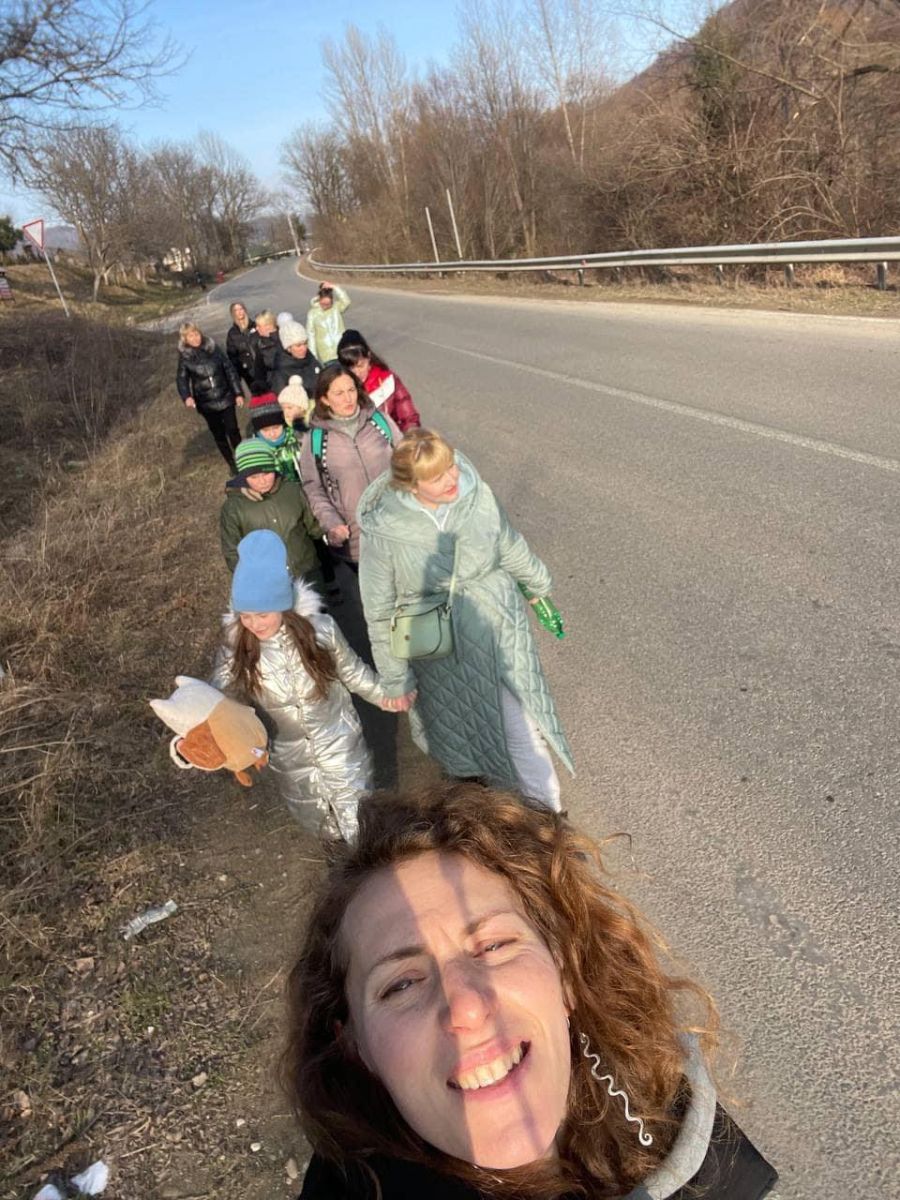
2. Psychological rehabilitation of soldiers and their families
Since the summer of last year, the «Recovery during the War» Programme has begun joint rehabilitation projects in cooperation with the National Guard of Ukraine (NGU). Two projects for the wives and children of the NGU soldiers, including those who have lost husbands or sons as a result of hostilities, were conducted during the autumn of last year.
In 2023, we received a proposal from the Western Department of the NGU for cooperation in rehabilitation projects in a new location, a mountain village in the Ivano-Frankivsk Oblast. The Programme has completed 5 projects with the NGU in 2023 and provided psychological assistance to 69 soldiers (after they had recuperated physically from injuries) and their families.
Before June 30, 2024, the Programme completed two projects for the psychological rehabilitation of NGU servicemen with injuries and numerous barotraumas (30 persons).
A separate project of the Programme with only military personnel (№ 82) was held in February-March 2024 at the specified location. A total of 22 servicemen with injuries or numerous barotraumas were invited to the project. Upon completion of project № 82, the following results were obtained:
- The psycho-emotional state increased by 4-5 points from 1-2 points at the beginning to 7-8 points.
- The well-being of the participants improved both physiologically and psychologically. Factors that prevented the fighters from functioning normally were worked through.
- The participants developed the skills of self-regulation, overcoming the psychological pressure of stressors, emotional and behavioural manifestations. They received knowledge bases for the understanding and correction of their psycho-emotional state.
- Psychological self-help skills and psychological first aid skills in a combat environment were formed.
- Emotional spheres were adjusted: anxiety reduction, correction of fears and aggression.
- The skills of finding and activating positive resources, normalisation of the psycho-emotional state, and social-psychological readaptation were also formed.
- Thanks to art therapy, the skills of transferring negative emotions and traumatic experiences into creative activity were developed, which enabled the participants to process and overcome traumatic memories and experiences as well as aggression.
- Working with a masseur allowed the participants to relax the body and work with the clamps and problems of the body.
In general, the goal of the project has been achieved. It should be noted that the participants are poorly informed and have numerous psychological as well as physiological problems. The extent of their traumas and limited time of the project do not allow to fully process traumatic events, manifestations, and syndromes, but despite this, we can state that the project has completely succeeded in improving and stabilising the psycho-emotional state, normalising behaviour, and re-socialising the military personnel. The participants improved their mood, looked much better than at the beginning of the project, and began to gain a healthy weight and discuss restoring the physiological functions and needs of the body.
.
Another project (№ 93) at the same location was conducted with NGU servicemen released from captivity and their families. The project took place in April-May 2024, and 8 people in need of deep psychological intervention after physical rehabilitation participated in it. 14 family members of the specified servicemen also took part in the project.
3. Continuation of psychological rehabilitation
After completing an intensive course of psychological support, some women and children need to continue the process of psychological rehabilitation. Based on the recommendations of the Programme's psychologists, we created the second stage of psychological rehabilitation in the form of online counselling courses lasting 4-16 weeks with weekly online sessions. The free online counselling courses are provided free of charge by our partners, the psychological institutions mentioned above. The project has a volunteer coordinator.
As of Joly 1 of this year, we had the following results of online courses:
|
|
6 months of 2024 |
12 months of 2023 |
Total as of July 1, 2024, starting May 1, 2022 |
|
Application for online courses |
128 |
106 |
234 |
|
Completed online courses |
128 |
100 |
228 |
|
In the process of counselling
|
|
|
6 |
In rare cases when a psychologist conducting online counselling observes a deterioration in the condition of a woman or child under their care, they can ask the Programme management to repeat the intensive course of psychological support.
.jpg)
4. Psychiatric consultations
Since March of 2023, the main project of the Programme has been occupied exclusively with participants with severe stress, who belong to the third group based on the screening results. Due to this complication, the psychologists-methodologists of the projects requested the Programme’s leadership to provide the possibility of conducting psychiatric consultations for individual participants of the Programme. In addition, the need for psychiatric consultations sometimes arises during the screening.
Under the Programme, a service was created with 13 professional psychiatrists who conduct the aforementioned consultations online and offline when possible, diagnose the participants, and prescribe the necessary medications.
186 consultations have been called for since their introduction, almost all of which took place. The Programme has also financed the purchase of medication for some participants.
In the first six months of this year, 111 psychiatric consultations took place, and PTSD was diagnosed in 14 participants. Medication was prescribed to 109 participants. 4 follow-up consultations were held.
During the screening process, the psychologists have turned to the Programme 217 times with requests to pay for psychiatric consultations for the women being tested. This assistance was provided by the Programme in most cases.
Considering the rather large number of women in need of psychiatric counselling in the Programme, the position of volunteer coordinator of psychiatric care was introduced two months ago.
All the methodologists who have called for psychiatrists note the positive effect of cooperation between psychologists and psychiatrists and the increased workflow efficiency.
Thanks to the consultations, we know that dozens of women who entered our projects had already been diagnosed with PTSD.
If funding is available, based on the recommendations of psychologists, we plan to begin psychiatric consultations almost immediately after screening. The purpose of such preventive counselling is to stabilise the psycho-emotional state of certain women 2-3 months prior to participation in the next Programme project with the help of medication.
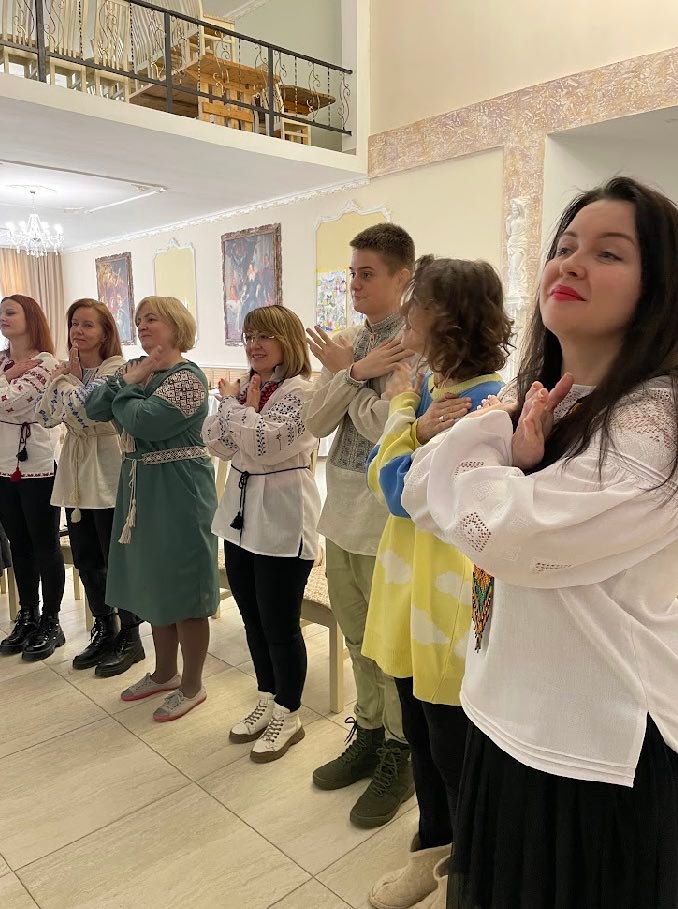
5. Rehabilitation of the women who suffered from violence in the temporarily occupied territories
During the end of 2022 and throughout 2023, the psychologists of our Programme attempted for the first time the psychological rehabilitation of individual women who were imprisoned in the temporarily occupied territories of certain eastern regions of Ukraine.
Now that the Prosecutor General of Ukraine has completed the preliminary investigation into 182 cases of violence in the temporarily occupied territories, at the end of July 2023, the Programme team started a rehabilitation project for 9 women who have suffered from violence in the occupied territories.
During May-June 2023, we conducted several webinars with Ukrainian and Israeli professionals on the rehabilitation of women who have suffered from violence in the temporarily occupied territories.
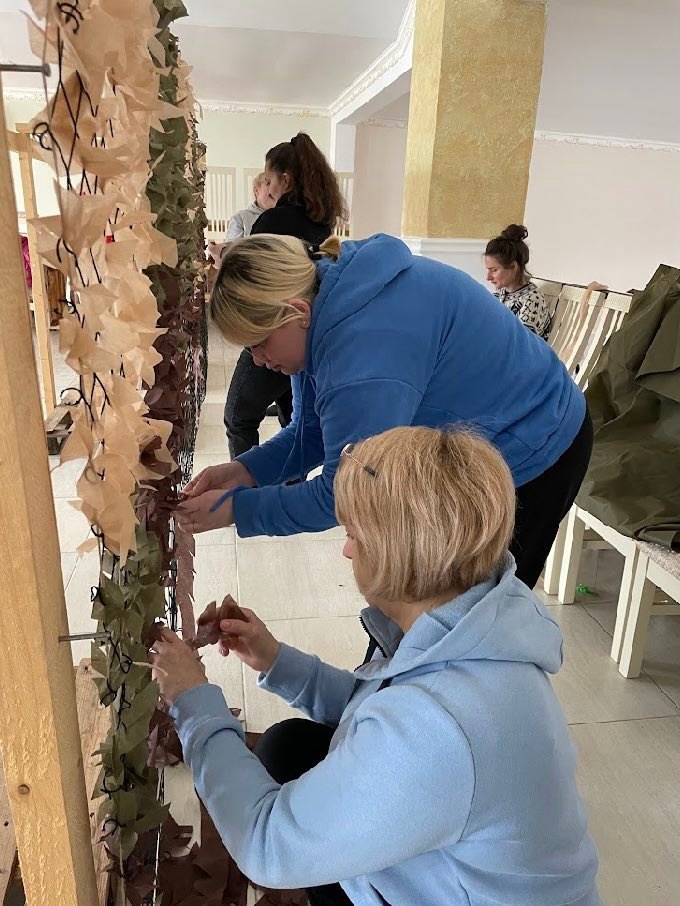
6. Rehabilitation of female military personnel who were liberated from Russian captivity
23 female servicemen took part in four projects of our Programme with referral from the Cabinet of Ministers (2, 12, 5, 4).
Female servicemen who are overcoming the consequences of being in Russian captivity make up a separate target group of the Programme, and working with them has a number of special features.
Among them are the following:
- The time since release and the amount of rehabilitation services the person has received should be taken into account.
- The psycho-emotional state of persons who have just been released is characterised by a persistent sleep disorder and signs of exhaustion, which may include intolerance of social contacts.
- Sleep quality is satisfactory and social communication is normal in persons who have been in their homeland for more than 11 months and have received or are receiving rehabilitation services.
- It is worth creating a more flexible rehabilitation programme, providing opportunities for choosing activities and the time that can be devoted to activities.
- It is necessary to build the work in such a way that the stay at the Programme does not remind these women of a strict "camp regime."
- It is necessary to separate civilians and military personnel into homogenous groups during group therapy, as each category seeks to discuss the specifics of its own experience.
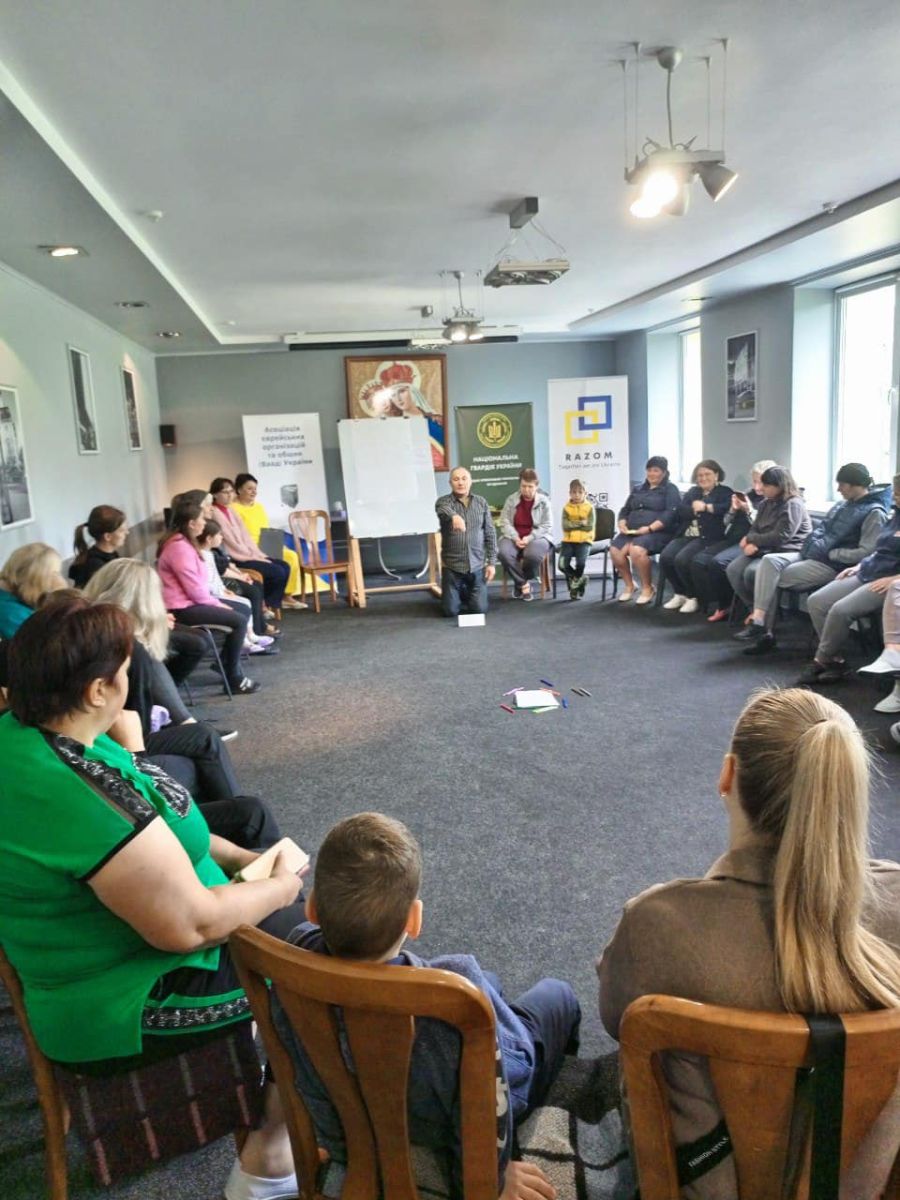
7. Rehabilitation of bereaved families
As was already mentioned above, 24.9% of the families that passed through the Programme's projects in 26 months are families with war losses.
During 2023, the Programme had a number of projects with losses: either large projects where all families were bereaved or large groups with one bereaved subgroup and one that consisted of IDPs with a high stress rating. Importantly, during the three weeks, the bereaved families not only worked with grieving practices but were also offered recovery practices.
What are the features of working with clients grieving the loss of a loved one? All clients experiencing the loss of a loved one need more time to express their thoughts, feelings, and experiences. This need is usually frustrated in social centres, work teams, and family circles due to the unwillingness of the surrounding people to face the intense, difficult emotions that accompany grief.
Therefore, it is important to set aside more time for individual meetings, up to 1.5 hours. For a sufficient amount of time in group sessions, the number of participants should be limited to 6-7 people, a non-directive approach to group management should be used, and the time of psycho-educational interventions by coaches should be limited to 10-15% of the duration of the meeting.
There is a peculiarity to bereavement in military families as opposed to civilian ones. Family members of combatants find it easier to find the meaning they can assign to the death of their loved ones, along with treating them as heroes. We observed that the relatives of the fallen defenders feel their special social status and expect proper recognition not only from the team but also from the entire society, and, as a specific example, recognition from the staff on location.
There is a significant difference between the grief of the mothers of the dead and the grief of their wives. Widows, especially younger ones, experience a loss of social status, a personal crisis due to the loss of a husband, and the need to find a new identity. At the same time, they may receive little understanding from society and instead face a certain "diminishment of grief" based on the common notion that a husband can be "replaced," while a blood relative, such as a child or a sibling, cannot.
We observed the phenomenon of emotional simultaneity in the project’s clients, caused by grounding their self-identification in the traumatic experience. This especially applies to relatives of the deceased. This emotional simultaneity encouraged the bereaved to emphasise their bond with one another and heighten their boundaries with non-victims. In turn, this leads to their providing social support, comparative experiences, and practical assistance to one another.
The practical implication of this phenomenon is the formation of homogeneous groups of clients on the basis of traumatic experience at each project to increase the effectiveness of rehabilitation measures in accordance with our goal. In particular, we consider it necessary to create separate groups for widows and for mothers.
Another important factor in the formation of bereavement subgroups is the amount of time between the moment of death and the project. Beginning to work with grief earlier than three months from the moment of the loss and combining widows with recent losses and old ones (over 2 years) are both undesirable.
During projects with losses, we build a strategy of psychological assistance for bereaved persons based on the dual model of grief by M. Stroebe and H. Schut. This model involves attention to two processes, one of which is focused on the experience of loss and the other, a parallel one, on recovery.
For many of our clients, restoration and building an image of the future are difficult tasks. During three weeks, these tasks were solved gradually. In the first week, we actualised key resources that the participants could use here and now. In the second week, the focus was on personal resources, their use and development, new opportunities, and coping strategies. The third week was dedicated to the image of the future and plans for both distant and immediate life tasks.
.jpg)
8. Rehabilitation of families with ambiguous loss
Work on the psychological rehabilitation of families whose close relatives went missing was carried out during project № 73 in October-November 2023.
The specificity of this shift was that 10 women experienced an "ambiguous loss," and most of them had missing husbands, while one had a missing mother and sister. The rest of the group—7 participants—were IDPs who experienced a definite loss: loss of property and housing with no opportunity to return to their homes due to the occupation of the territory where they lived before the war.
All project participants were divided into two subgroups based on trauma ambiguity. All women with ambiguous loss were in a separate subgroup from IDP women. In these subgroups, they worked in all the core group activities, such as the talk therapy group, physical therapy group, and art workshop. Together, all the women connected at the supportive resource group "Evening Circle," at dance therapy, and, for those willing, at an art workshop, in addition to the core activities on the schedule.
1. Based on the observation of the interactions between the subgroups, it can be said that combining participants with different types of trauma within the same shift is ill-advised. Women with ambiguous loss are more mentally unstable and are in a mentally depressed state; their personal stories are very intense in terms of experience for themselves, and sharing them during joint meetings was quite traumatising to the women from the IDP subgroup as well. Nevertheless, the support of IDP women, even though they had a different type of trauma, was quite resourceful for women with ambiguous loss and enabled the latter to feel connected with other people because, unfortunately, they often lack support in their native environment and families and feel alienated from society.
2. The majority of women with ambiguous loss had a high score on the PTSD screening test. Most of them had tangible manifestations of poor mental state: symptoms of a depressive disorder, lack of sleep for a long time, increased aggressiveness, irritability, etc. Therefore, we believe that in order to effectively work with such clients, a mandatory consultation with a psychiatrist is required at least 14 days before the shift in order for any medication prescribed to start working before the start of the shift. This way, the clients’ work with psychologists will be immediately impactful and constructive.
3. As can be seen from the positive experience of working with this category of trauma, it is advisable to implement more art therapy techniques with a qualified art therapist. At the beginning of work, it was very difficult for these women to work through their trauma using conversational techniques due to their poor mental state. It was art techniques that had a great effect during this shift. The desire of these women to work in the art workshop was several times stronger than on other shifts.
4. It is appropriate to implement more physical practices to relax and slow down with the help of a qualified physical therapist.
5. It is crucial during individual consultations to keep a neutral position regarding the client's attitude to the ambiguity of their loss and not to encourage certainty. The main goal of the consultation is to support the client, accept their emotions, and find resources that can support them on the way to resolving ambiguity.
6. One of the main ideas of working with these clients is to bring them back to life, to give them the opportunity to allow themselves to live a full life and be happy, because most of them are in a state of living “in limbo” until the lost loved one is found.
7. It is also appropriate to continue consultations, at least online, after returning home in order to consolidate the effect and help in adapting acquired skills to personal life at home.
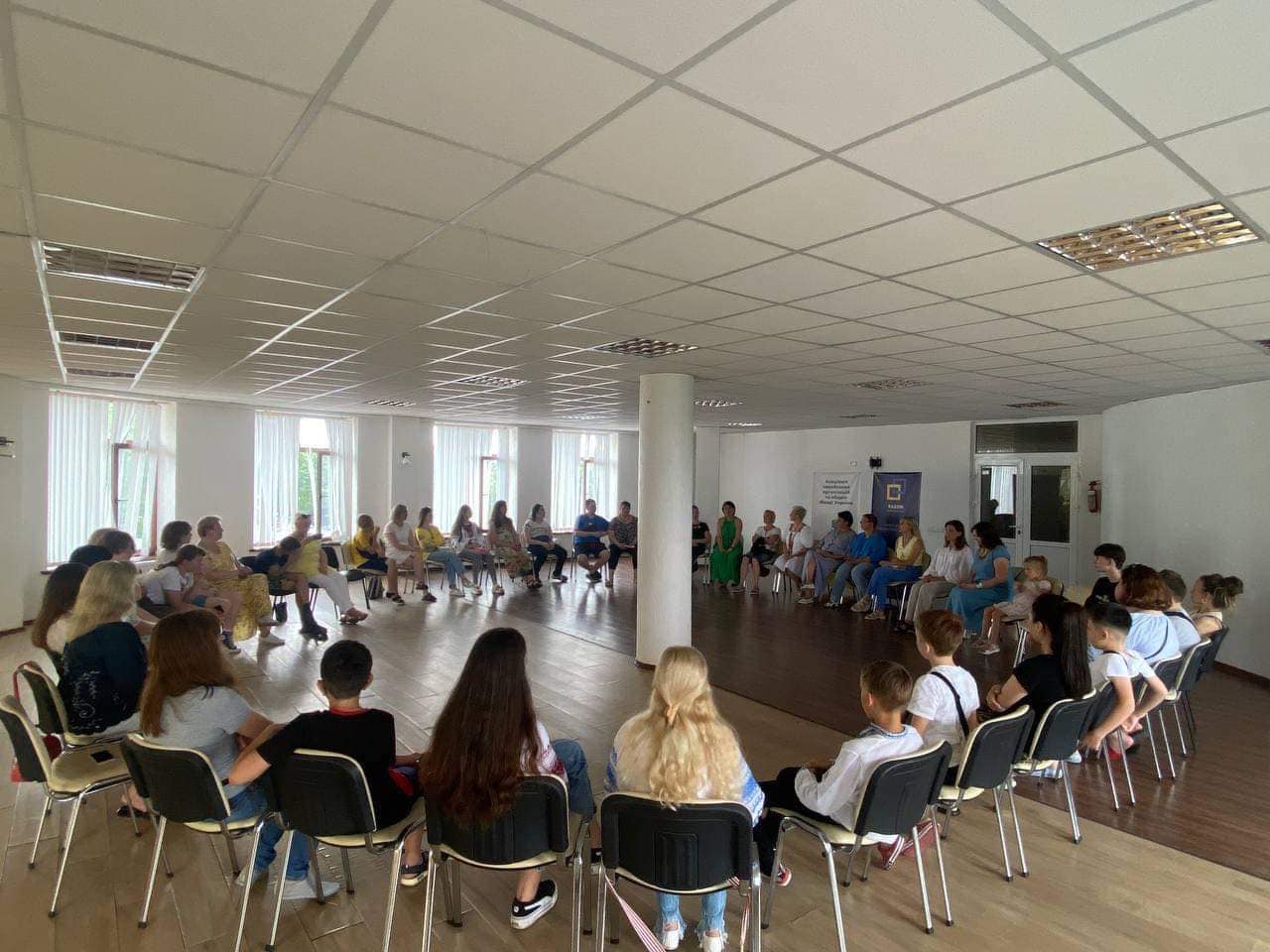
Advanced training of the Programme’s volunteers and professionals:
- Seminar for the training of methodologist-psychologists (see 1);
- Lectures by psychologists for programme volunteers;
- Internship in real project conditions for project administrator candidates;
- Online course on Hibuki therapy for 30 Programme psychologists
- International Institute of Postgraduate Education (IIPE) webinar "Introduction to trauma therapy";
- IIPE webinar "Introduction to child psychotherapy";
- Department of Psychology of UCU webinar for psychologists conducting the screening;
- Webinars with Israeli and Ukrainian professionals on the rehabilitation of victims of violence in the occupied territories;
- Webinar on the psychological rehabilitation of military servicemen with Tetyana Sirenko;
- Webinar on the psychological rehabilitation of families with ambiguous loss;
- Seminar on the psychological rehabilitation of families with losses;
- Before the start of each project, methodological seminars are held for the psychologist teams;
- 6 webinars on trauma therapy with instructor Iryna Ulezko;
- 2 webinars with instructor Zlata Zymovets on working with barotrauma and 1 seminar on trauma therapy;
- Next year, we are planning seminars and webinars with Israeli and Ukrainian professionals.
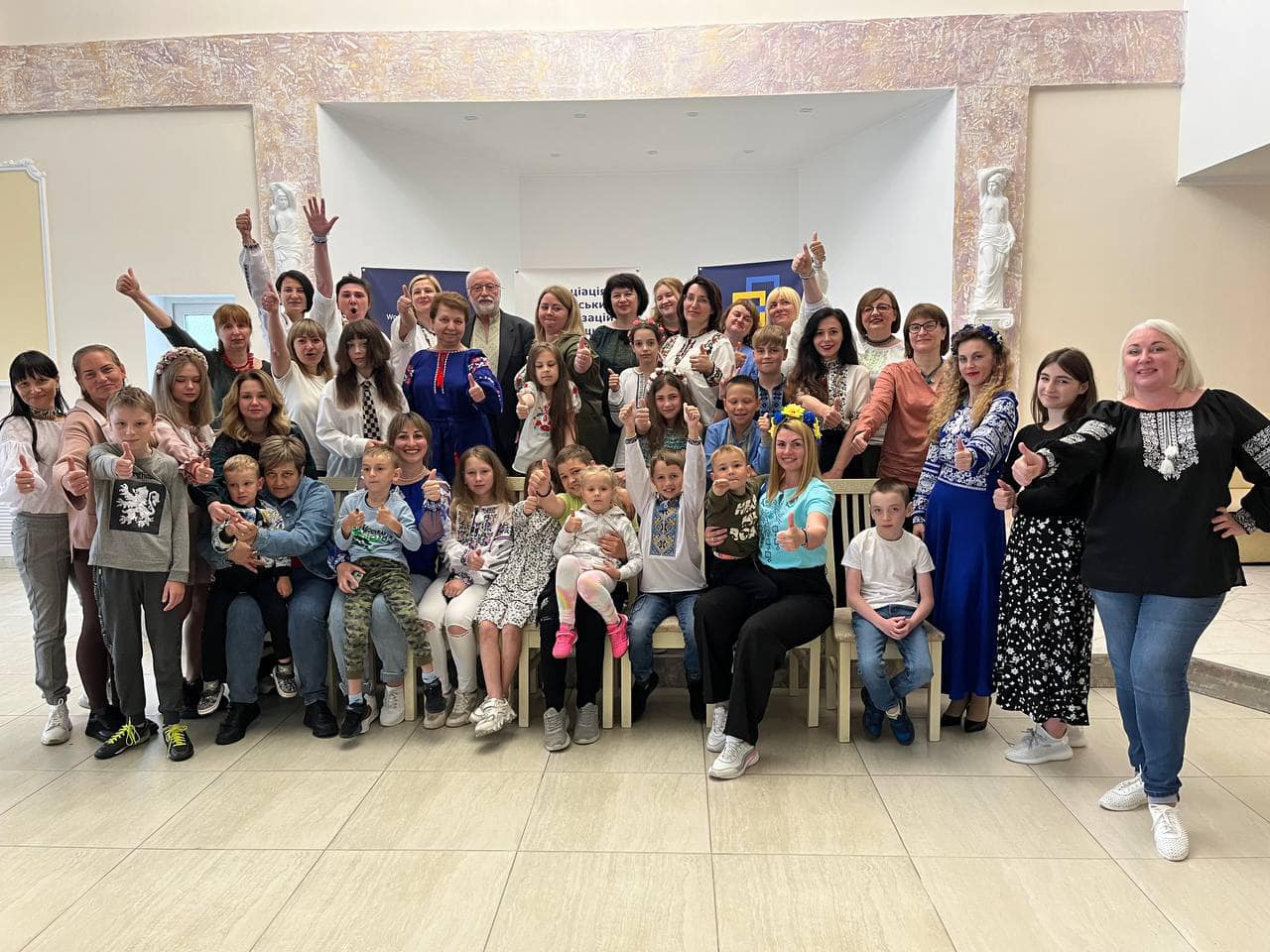
Sponsors and partners of the Programme:
- NOVA UKRAINE Foundation (California, USA);
- World Jewish Congress (New York, USA);
- Ukrainian World Congress (Toronto, Canada);
- RAZOM, INC Foundation (New Jersey, USA);
- The Masha Fund (Kyiv, Ukraine);
- Dutch Jewish Humanitarian Fund (Amsterdam, Netherlands);
- The Polsky Foundation (Chicago, USA);
- International Renaissance Foundation (kyiv, Ukraine);
- First Sport Group (Ukraine);
- Marieluise Beck Foundation (FRG);
- Temerty Family Foundation (Canada);
- ASTARTA Agro-industrial holding (Ukraine);
- Georgii Logvynskyi;
- Alex Litinetskyi;
- Infopulse software development company (Ukraine);
- Western Department of the NGU;
- The Jewish Agency for Israel (Sochnut);
- Israel Trauma Coalition;
- IRIS, an Israel-based volunteer project for psychological support of the victims of war in Ukraine;
- Blakytnyi Ptakh psychological NGO;
- Vilnyi Vybir psychological NGO;
- H.S. Kostyuk Institute of Psychology of the National Academy of Sciences of Ukraine;
- Department of psychology of the National University of Kyiv-Mohyla Academy;
- Institute of Mental Health (Lviv, UCU);
- International Institute of Postgraduate Education (Kyiv, Ukraine);
- Kyiv Educational Centre "Tolerspace" (Ukraine).
Programme Manager, Co-president of the Vaad of Ukraine Josef Zissels
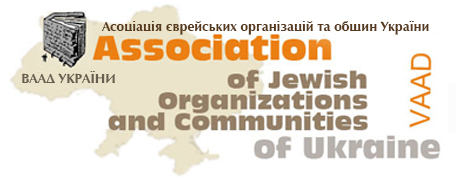
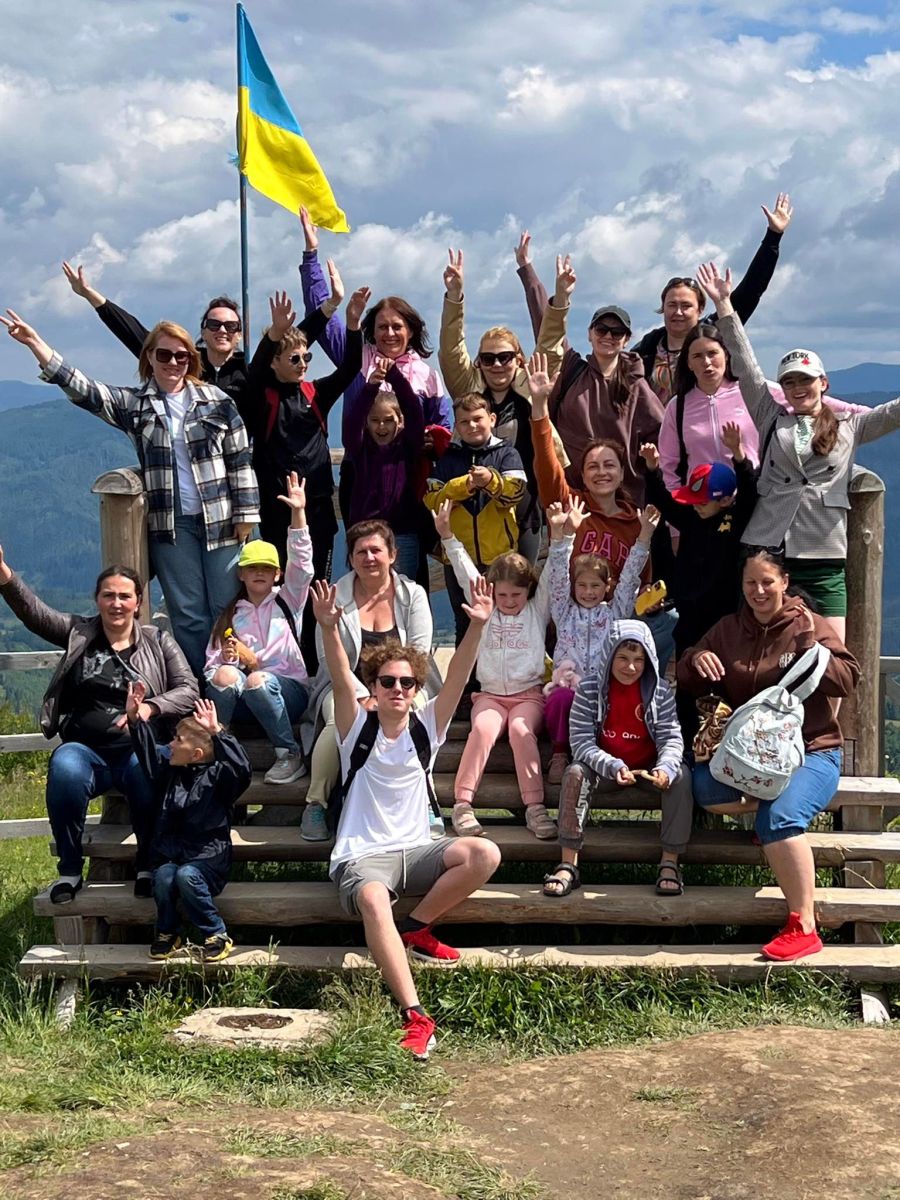
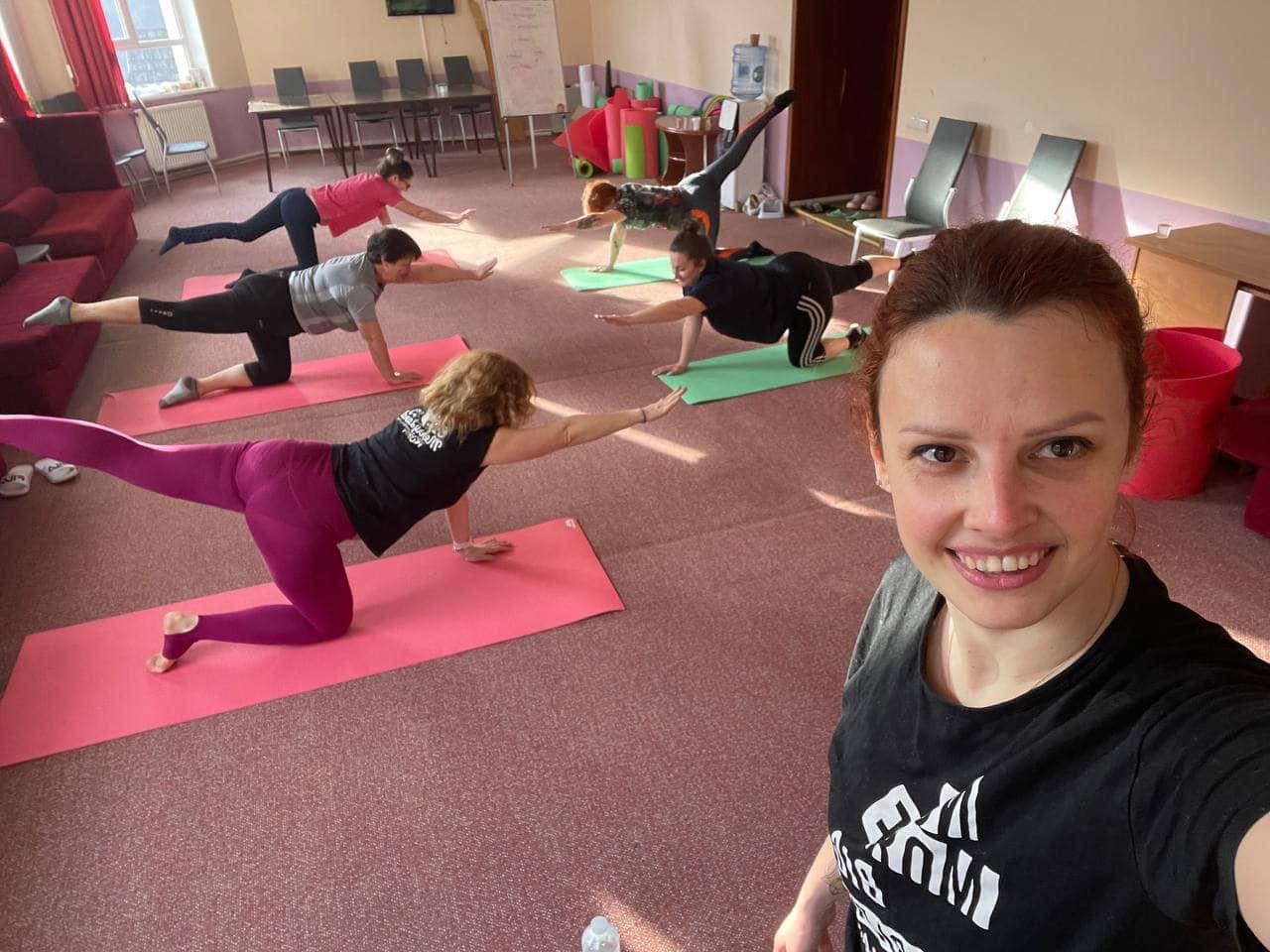


.png)

